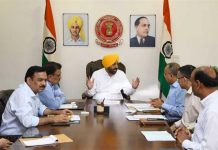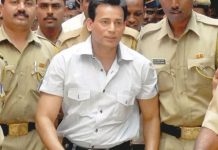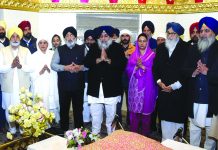
Why do you oppose someone with credentials of development in his state from becoming the prime minister? Why should a single incident of violence be held against him?
Development is a misnomer. Has anyone even computed the ecological, social, ethical and moral cost of development? The English-speaking supporters of Narendra Modi think once he becomes the PM he will revive the economy and they will get Rs 20-25 lakh annual pay packages, which they don’t now. How many MoUs signed by Modi have materialised? He has been giving free land and subsidised power to industry. Gujarat’s growth is not inclusive. It has failed to benefit the tribal and rural people.
Isn’t Modi seen as an honest chief minister because he has no corruption charges against him?
If he was so honest, why did he need to suppress and neuter the Lokayukta? If you are the most honest, then your watchdog should be the strongest of all.
Modi has won three successive Assembly polls. Surely, the people of Gujarat have approved of his development work?
Modi became the chief minister in October 2001 replacing Keshubhai Patel. The massacre of Muslims happened in February-March 2002. He won the Assembly election in October. Where was development then? Isn’t it obvious that he won because of vote polarisation? Besides, it is a myth that the BJP has performed better under him in Gujarat. He won 126 out of 182 Assembly seats in 2002. In 2007, that came down to 117 and in 2012 to 115.
But if you part ways with the BJP, won’t you lose the upper-caste votes that came to you in recent elections because you were allied with it?
People are now speculating that if the BJP leaves the alliance, the upper castes won’t vote for the JD(U). But we believe that 25-30 percent of the upper castes would still vote for us because of the work that Nitish Kumar has done. The Brahmins had once supported the BJP because (former prime minister) Atal Bihari Vajpayee was its leader. It is unlikely they will support Modi. Vaishyas (an OBC community) have nationally always voted for the BJP. But because of our work we believe 20-25 percent of them would vote for us.
And Muslims?
Bihar’s Muslims know that Nitish is a secular man and that he alone runs the government. Only about 20-30 percent of Muslims voted for us the last time because of our ties with the BJP. Our pasmanda (backward) Muslim candidates, with long histories of struggles against dominant Muslim nobility, won. If we contest independent of the BJP, the Muslim vote will flood us.
But how do you explain the BJP winning Muslim-dominated constituencies such as Bhagalpur and Araria in the past Lok Sabha elections?
Muslims are divided wherever they are numerically stronger and there are many Muslim candidates. In such constituencies, Muslims have no fear and they vote normally. It is the Hindus there who come together to vote as a bloc.
Why is your party suddenly talking about secularism after cohabiting with the BJP for 17 years?
Every political party, especially the Congress, has played the Hindutva card. In the first Lok Sabha election of 1952, the Congress put up a sadhu against Acharya Narendra Dev. The party publicly called the socialist leader an atheist and asked Hindus to not vote for him. When a complaint was made to Jawaharlal Nehru, he did nothing. Indira Gandhi played the Hindu card in Jammu during elections. Rajiv Gandhi as the prime minister ensured that the gates of the Babri Masjid in Ayodhya were opened, which created a huge Hindu-Muslim divide. His capitulation in the Shah Bano case, whereby Parliament legislated to overturn a Supreme Court judgment allowing alimony to a divorced Muslim woman, widely created the impression in the minds of the Hindus that Muslims were being appeased.













